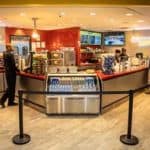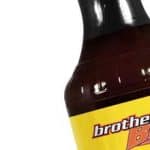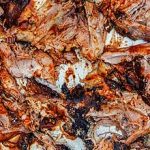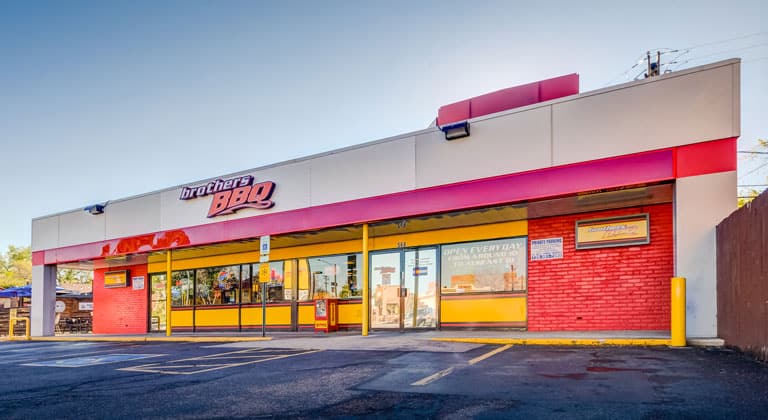
This article was originally published by Judy Kneiszel in April, 2010.
View the original article here.
The Denver-based chain takes advantage of the area’s transient population that misses its hometown barbecue.
The city of Denver does not immediately conjure up images of barbecue joints like St. Louis, Kansas City, or Texas can. But that’s precisely why Denver seemed like a good place for brothers Nick and Chris O’Sullivan to start a chain of barbecue restaurants in the late ’90s—not much competition.
The brothers took the long way around in getting to Denver. They were born in England, raised in the U.S. by English parents, and lived, as Nick O’Sullivan says, “a little bit of everywhere.”
“We moved here when I was in eighth grade, and just fell in love with Colorado,” he says. “Colorado has a lot of transients because it’s a fun place to live and there’s so much to do. And there are a lot of people here from places like Texas, Kansas, and the Carolinas who miss their barbecue.”
The menu at the five Brothers BBQ restaurants in the greater Denver area includes St. Louis-style, dry-rubbed pork ribs, as well as beef brisket they call a “combination of Texas and Kansas City styles.”
“It was a lot of trial and error at first,” O’Sullivan says. “We did a lot of cooking at home to perfect our recipes.”
Brothers BBQ started with two sauces: Original KC Sauce and Tangy Vinegar.
“Then we added a hot sauce out of demand from customers, and similarly a Mustard BBQ and a Sweet BBQ because we were getting a lot of requests from kids for a sweet sauce,” O’Sullivan says. “The sweet sauce ended up going well with our hickory smoked beef ribs and is now one of our most popular.”
Along with the pork ribs and beef brisket, beef ribs and pork shoulder round out the menu. The shoulder is smoked fresh for more than 15 hours and is popular in sandwiches. Hot links, spicy smoked sausages that are sliced and grilled, are available on a bun or in a signature sandwich called The Brother, which tops smoked pork shoulder with a thin layer of grilled hot link, plus coleslaw, tangy vinegar barbecue sauce, fresh jalapeños, and fried onions and sells for $6.99.
The array of meats at Brothers BBQ comes in serving sizes from a single sandwich to the “two meat special,” which includes any two meats, two sides, and a bun for $9.99. Popular sides include the barbecue beans made from the O’Sullivans’ own recipe, creamy coleslaw from an old family recipe, and potatoes in mashed, salad, chip, or french-fried form. The average individual meal ticket comes in between $8–$12.
Brothers BBQ restaurants are open from 10 a.m. to 10 p.m. every day. The stores range in size from 900 square feet in the original location to 3,500 square feet at the biggest store. Seating ranges from 20 to 75 seats per location.
But business doesn’t stop at the restaurant doors. Carryout is big—30 to 70 percent of sales, depending on location—and catering has grown every year, to the point where O’Sullivan calls it “the equivalent of a sixth restaurant.” They operate the catering business out of a separate commissary kitchen so the restaurants aren’t affected by big jobs.
“In the summer of 1998 we got a bid to do the Major League Baseball All-Star Game party,” O’Sullivan says. “We fed 20,000 people, but we had to close the restaurant for two days. We slept on the floor and cooked 24 hours a day. And we ended up making way too much food. It was a big learning experience. Now we could do 20,000 meals out of our commissary kitchen and the restaurants wouldn’t be affected at all. We have a full-time catering coordinator and a crew that does catering. It’s kind of seasonal, so we hire teachers, students—people who have summers off—to do the catering. That way we don’t have to lay people off.”
While the catering business is growing, one endeavor the brothers attempted, but then backed off of, was franchising.
“At one point we launched a franchise company,” O’Sullivan says. “But we decided it didn’t suit our personalities and our vision for the business. We wanted to keep control.”
He says the company ran into complications, such as trademark issues involving the company name.
“The more we got into it, the more we found out that the franchise business is a completely different business from the restaurant business,” O’Sullivan says.
O’Sullivan says he was 20 years old when he and Chris, then 22, opened their first restaurant.
“That means I’ve been working in and running restaurants my whole adult life,” he says. “I don’t have the corporate background required for franchising.”
Besides, O’Sullivan says, good barbecue isn’t easily duplicated.
“Barbecue is more of an art than a science,” he says. “If we got too big, at the end of the day the product wouldn’t be what we envisioned.”








